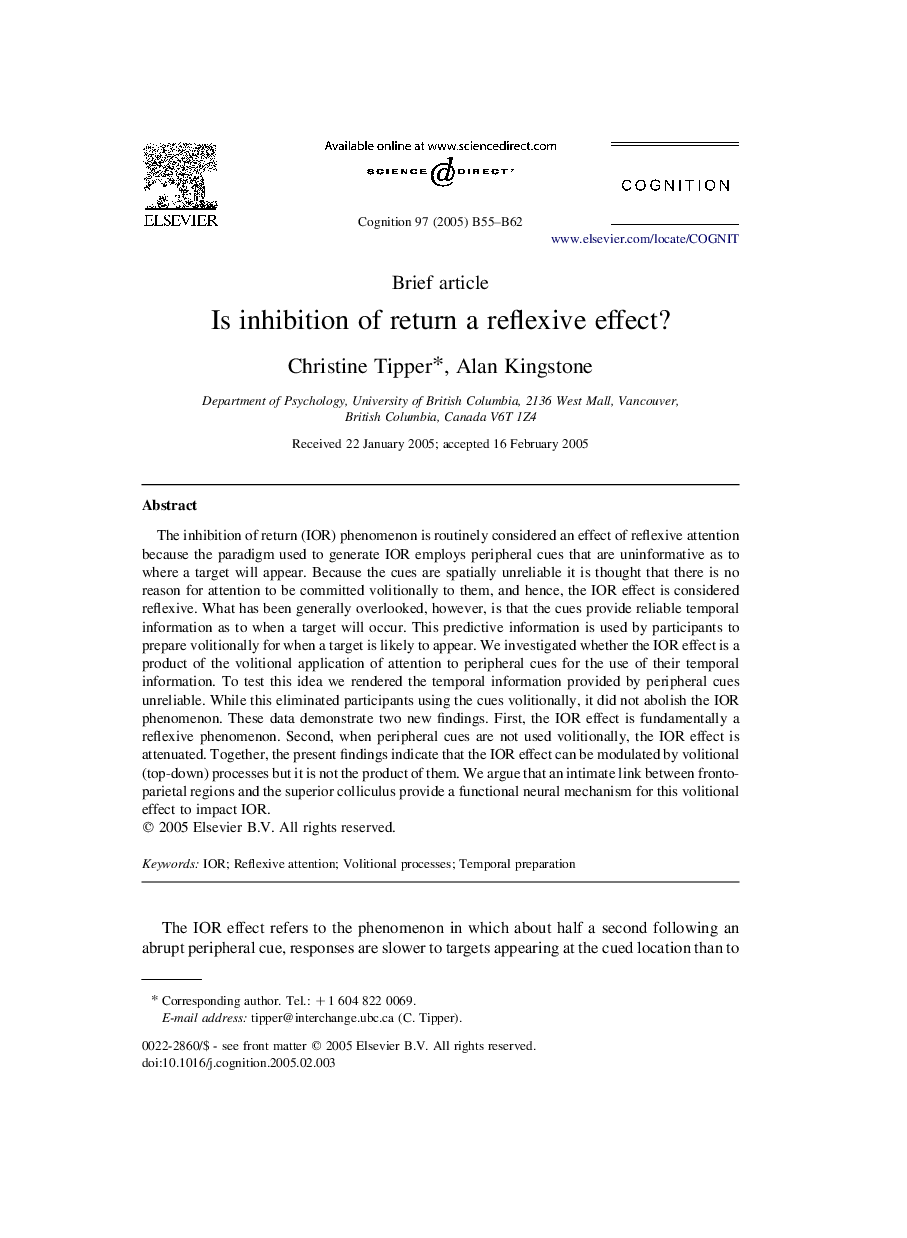| کد مقاله | کد نشریه | سال انتشار | مقاله انگلیسی | نسخه تمام متن |
|---|---|---|---|---|
| 10458064 | 921972 | 2005 | 8 صفحه PDF | دانلود رایگان |
عنوان انگلیسی مقاله ISI
Is inhibition of return a reflexive effect?
دانلود مقاله + سفارش ترجمه
دانلود مقاله ISI انگلیسی
رایگان برای ایرانیان
موضوعات مرتبط
علوم زیستی و بیوفناوری
علم عصب شناسی
علوم اعصاب شناختی
پیش نمایش صفحه اول مقاله

چکیده انگلیسی
The inhibition of return (IOR) phenomenon is routinely considered an effect of reflexive attention because the paradigm used to generate IOR employs peripheral cues that are uninformative as to where a target will appear. Because the cues are spatially unreliable it is thought that there is no reason for attention to be committed volitionally to them, and hence, the IOR effect is considered reflexive. What has been generally overlooked, however, is that the cues provide reliable temporal information as to when a target will occur. This predictive information is used by participants to prepare volitionally for when a target is likely to appear. We investigated whether the IOR effect is a product of the volitional application of attention to peripheral cues for the use of their temporal information. To test this idea we rendered the temporal information provided by peripheral cues unreliable. While this eliminated participants using the cues volitionally, it did not abolish the IOR phenomenon. These data demonstrate two new findings. First, the IOR effect is fundamentally a reflexive phenomenon. Second, when peripheral cues are not used volitionally, the IOR effect is attenuated. Together, the present findings indicate that the IOR effect can be modulated by volitional (top-down) processes but it is not the product of them. We argue that an intimate link between fronto-parietal regions and the superior colliculus provide a functional neural mechanism for this volitional effect to impact IOR.
ناشر
Database: Elsevier - ScienceDirect (ساینس دایرکت)
Journal: Cognition - Volume 97, Issue 3, October 2005, Pages B55-B62
Journal: Cognition - Volume 97, Issue 3, October 2005, Pages B55-B62
نویسندگان
Christine Tipper, Alan Kingstone,